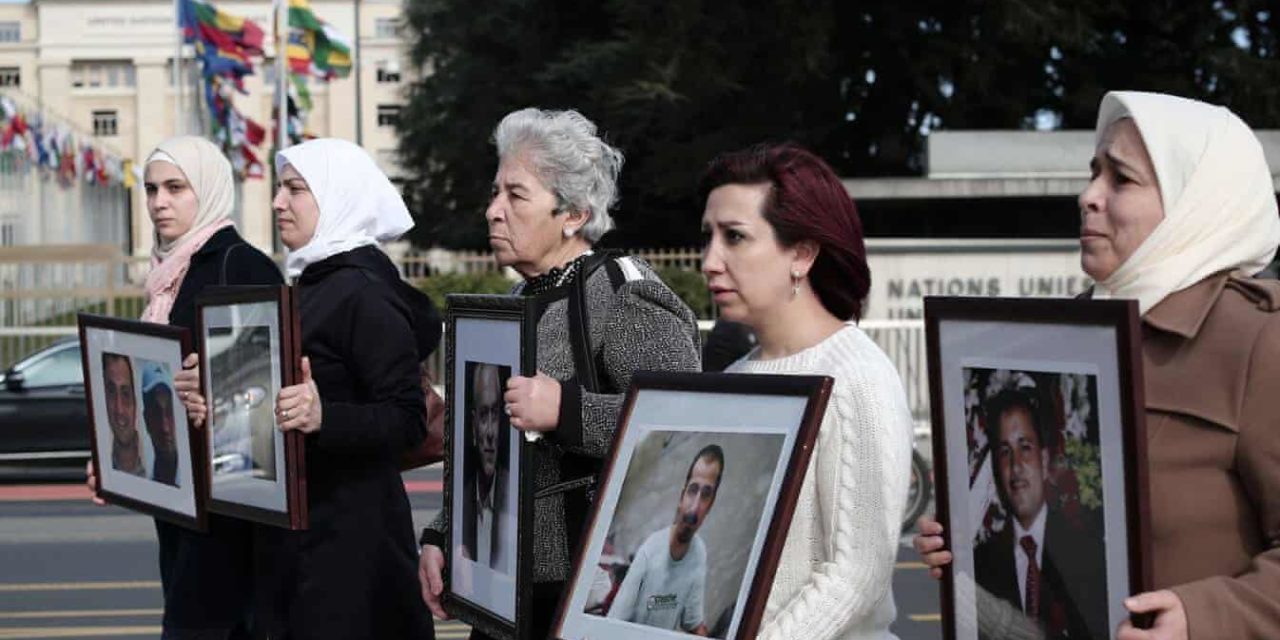Women hold up photos of relatives detained and “disappeared” by Assad regime in Syria,
outside the Palais des Nations in Geneva, Switzerland (Dylan Collins/Families for Freedom)
UN war crimes investigators have demanded that the Assad regime tell families what happened to tens of thousands of detainees who have disappeared.
The International Commission of Inquiry on Syria said the regime should provide the medical records and remains of those who died or were executed behind bars:
Most custodial deaths are thought to have occurred in places of detention run by Syrian intelligence or military agencies. The Commission has not documented any instance, however, where bodies or personal belongings of the deceased were returned.
Before and after the Syrian uprising of March 2011, the authorities tortured and killed thousands of detainees. Thousands more died from poor conditions.
In one prison alone, Sednaya near Damascus, up to 13,000 prisoners were executed between March 2011 and the end of 2015, according to Amnesty International. Images brought out by a defecting military photographer in 2014 recorded almost 7,000 detainees who were abused and killed.
A regime official said this autumn that at least 50,000 people had died or been executed in the 92-month conflict. He said the total may be 100,000.
Syrian authorities acknowledged in a report to the UN Security Council that they have released “thousands or tens of thousands” of names of detainees who died, mostly between 2011 and 2014. They did not acknowledge the torture and executions.
Syria's Disappeared The Case Against Assad (2017) from Javier Manzano on Vimeo.
Group Execution
The Commission of Inquiry said death certificates for prisoners recorded the cause of death as a “heart attack” or “stroke” in almost all cases. The place of death was stated as Tishreen military hospital or Mujtahid hospital both near Damascus, in most.
“Some individuals from the same geographic area share common death dates, possibly indicating group executions,” it noted.
The Commission assessed in a 2016 report that, given, the scale of deaths and executions, the Assad regime was responsible for “extermination as a crime against humanity”.

